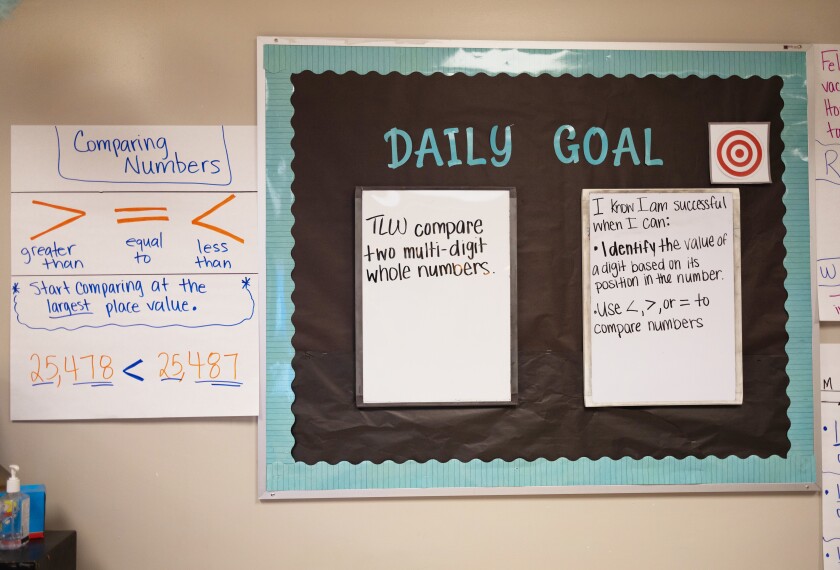Teaching Research
English Learners
What New Research Reveals About Grouping English Learners Together
New research cautions districts from defaulting to grouping all English learners together.
Mathematics
4 Research-Backed Tips for Mastering Math Facts
A new review of research offers evidence-based recommendations for classroom practice.
Mathematics
Debates Over Math Teaching Are Heating Up. They Could Affect Classrooms
A controversial new movement promoting the "science of math" has come into the math establishment's crosshairs.
Mathematics
How the Vocabulary Math Teachers Use Affects Student Learning
A new study draws a link between teachers' use of a discrete instructional practice and student performance.
Reading & Literacy
Video
How Reading Instruction Evolved in 2025, and What’s Ahead
Throughout 2025, Education Week has covered how states and districts are continuing to incorporate new instructional methods and materials.
Reading & Literacy
How to Build a Reading Block: Two Teachers Share Their Approaches
Studies don't prescribe how best to knit together components of reading—leaving it up to teachers to devise.
Reading & Literacy
A Popular Method for Teaching Phonemic Awareness Doesn't Boost Reading
In a new study, a highly used program didn't lead to improvements in students' word-reading abilities.
Reading & Literacy
These Teachers Have Their Students Read Multiple Novels a Year. How They Do It
Making time for reading, checking for understanding, and presenting works in context are top priorities.
Reading & Literacy
What Makes an Effective Reading Intervention? One Researcher's 5 Criteria
Studies highlight targeting specific skills and offering opportunities for practice, among others.
Reading & Literacy
Why Teaching Spelling Can Boost Students' Reading Skills
New evidence suggests some types of spelling instruction offer bigger payoffs for reading than others.
Teaching
What the Research Says
The Top 5 Myths Elementary Teachers Believe About the Science of Learning
Most teachers worldwide still believe myths about learning decades after they have been debunked. Here are the most common.
Artificial Intelligence
What the Research Says
How AI Simulations Match Up to Real Students—and Why It Matters
New research suggests teachers should be cautious when using AI tools to personalize learning for students.
Mathematics
How Should We Teach Math? General and Special Ed. Researchers Don't Agree
The divide makes it less likely that students who struggle will get access to proven strategies, researchers argue in a new study.
Curriculum
The Many Reasons Teachers Supplement Their Core Curricula—and Why it Matters
Some experts warn against supplementing core programs with other resources. But educators say there can be good reasons to do so.













